In the dynamic world of automobiles, few symbols hold as much weight as the Mercedes-Benz logo. This emblem, with its iconic three-pointed star, not only adorns the cars, trucks, and SUVs that roam the roads but also represents a legacy of luxury, innovation, and excellence. Let's take a journey through time to uncover the intriguing evolution and profound significance of the Mercedes-Benz logo.

History of the Logo
Origins and Early Beginnings
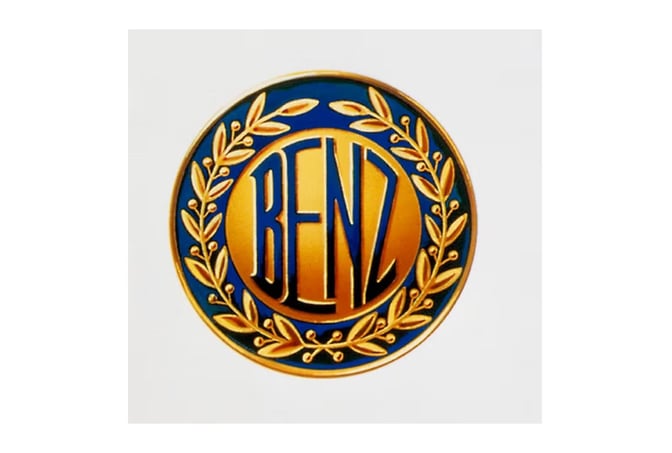
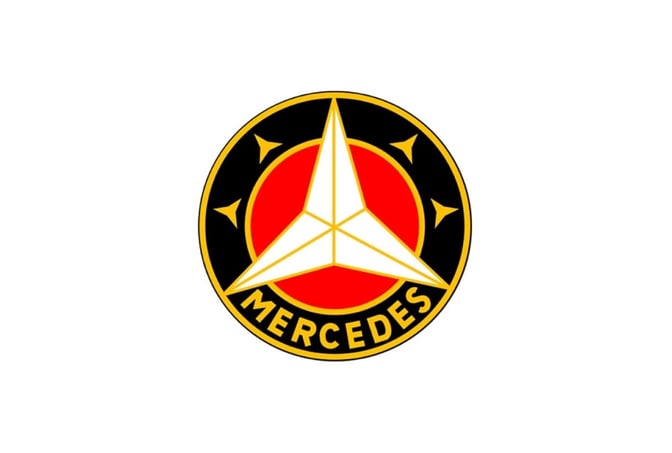
The roots of the Mercedes-Benz logo stretch back to the early 20th century. In 1909, Benz & Cie. sought trademark protection for their emblem featuring a laurel wreath. Around the same time, Daimler-Motoren-Gesellschaft applied for protection for the Mercedes-Benz star. This synchronicity between logo registrations mirrored the simultaneous development of the automobile by these two visionary companies.
Unification of Two Legacies
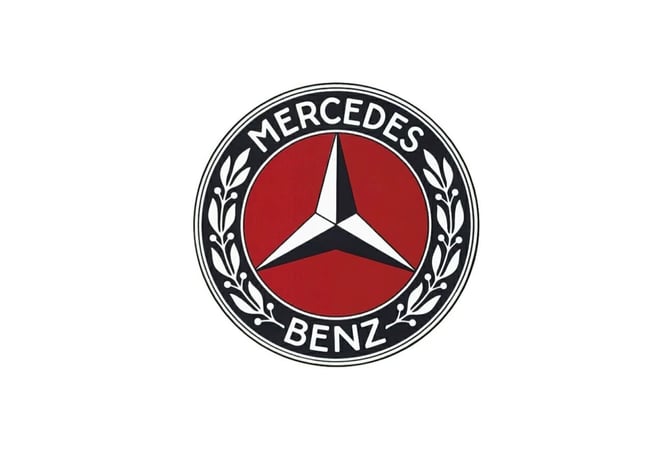
Fast forward to 1926, when Benz and Daimler united their legacies. The emblematic merger brought forth a striking new logo, unifying Benz's laurel wreath and Daimler-Motoren-Gesellschaft's three-pointed star. The confluence of these symbols represented not only the coming together of two manufacturers but also a powerful commitment to the future.
Evolution Over Time
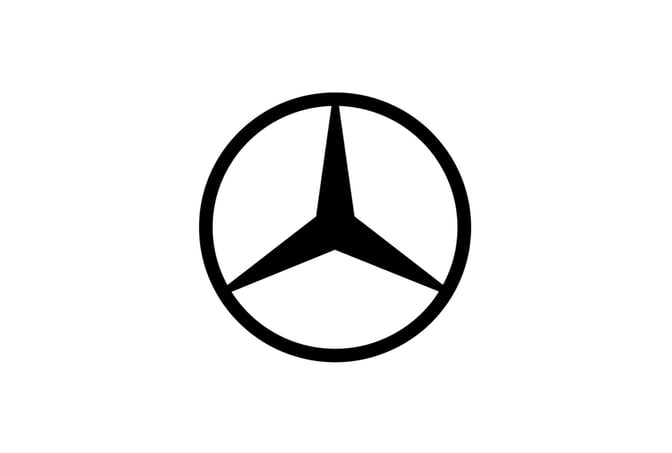
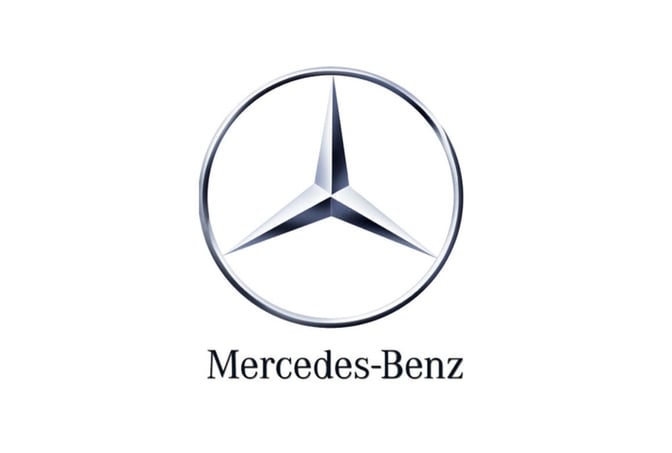
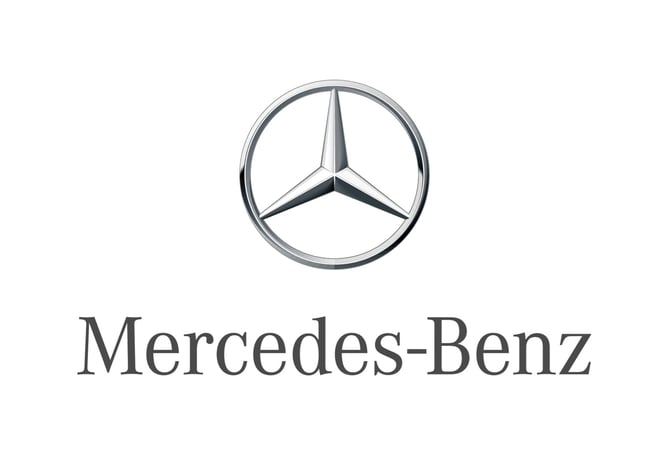
The logo's journey through time has been a testament to its adaptability and enduring charm. Imagine witnessing the evolution of the logo as it transitioned from its original form into a refined and minimalist design. Each iteration told a story of changing aesthetics while retaining the essence of the brand.
The Significance of Design Elements
The Three-Pointed Star
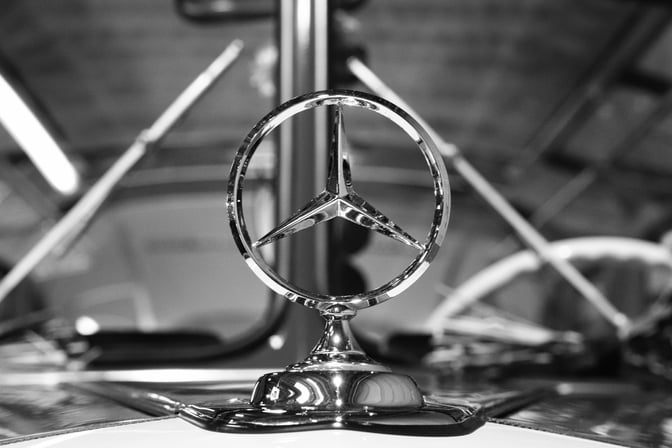
At the heart of the logo lies the three-pointed star, embodying a dual narrative. It pays homage to the Daimler family, whose patriarch used a five-pointed star as his signature. This transformed into a three-pointed star, symbolizing the brand's vision to conquer the realms of land, sea, and air. The star's triple points echo the company's ambitious pursuit of mastery across three domains.
Laurel Wreath
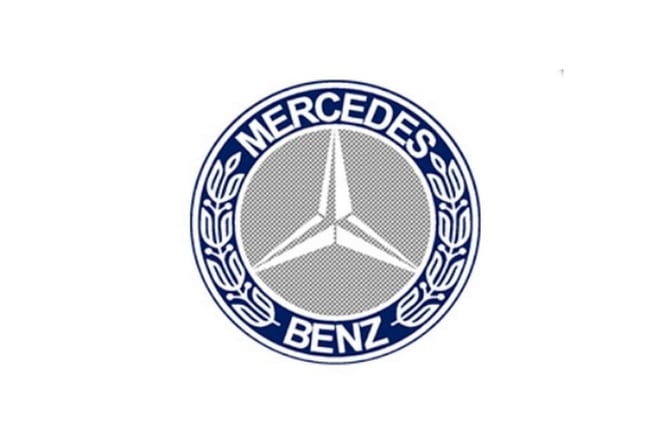
The laurel wreath, borrowed from Benz's emblem, adds a touch of historic elegance to the logo. This wreath, signifying victory and achievement, now envelops the star, encapsulating the enduring legacy of Benz. The harmonious coexistence of the star and the wreath speaks to the brand's respect for its roots and the seamless fusion of two distinct histories.
Color Palette
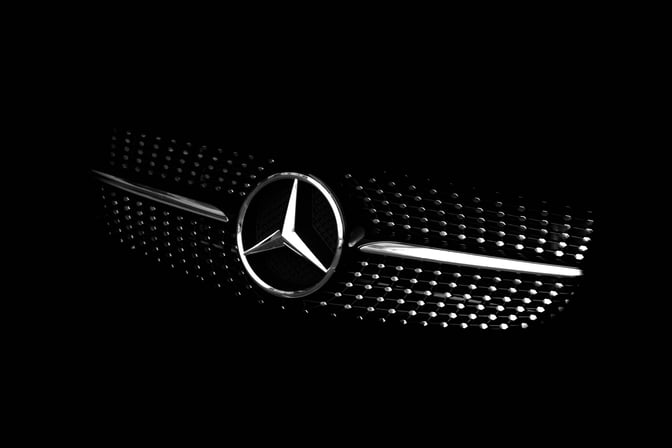
As the logo evolved, so did its color palette. The transition from blue to silver and gray represents more than just a change in hue. Silver reflects sophistication, creativity, and perfection, while gray signifies modernity and timelessness. These colors transform the logo into a visual embodiment of the brand's values and aspirations.
Conclusion
The Mercedes-Benz logo is a testament to the brand's journey through time, unifying two pioneering manufacturers into an emblem of excellence. With its three-pointed star representing ambition and conquest and its laurel wreath embodying history and victory, the logo narrates a story of innovation and legacy. As Mercedes-Benz continues to shape the automotive landscape, its logo stands as a beacon of luxury, performance, and aspiration, etching its mark on roads and in hearts across the globe.
For more automotive logo inspiration, you can also explore Free Automotive Logo Maker & Top Ideas from Famous Brands.
To explore more inspiring logo designs across various industries and styles, check out our collection of logo ideas. Whether you're seeking inspiration for your own logo or simply appreciate the artistry behind effective branding, our logo ideas showcase the creative possibilities in the world of design. Discover the power of visual identity and unleash your brand's potential with a captivating logo that captures the essence of your business or organization.
Disclaimer: Logomaster.ai is not affiliated with any of the companies whose logos are featured in this blog post. The logos are used for educational and inspirational purposes only. All trademarks and registered trademarks are the property of their respective owners.